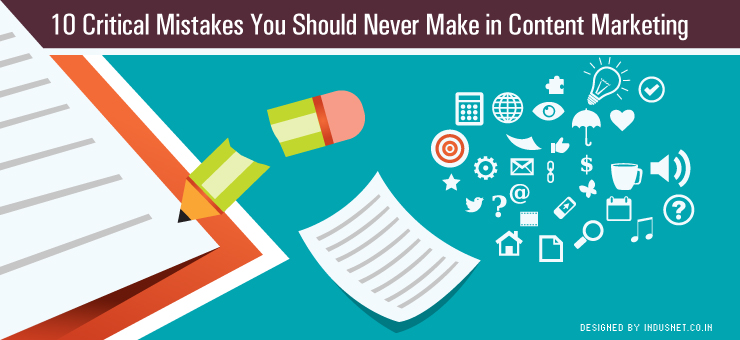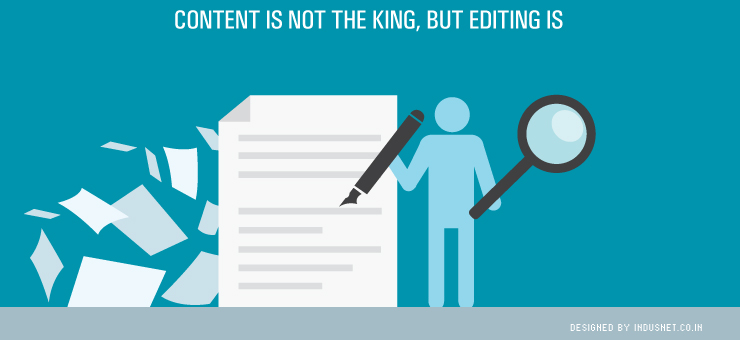
Content Marketing – The Biggest Game Plan to Execute in 2015
Content marketing has gained a lot of limelight in the previous year but it is about time when it needs to be taken seriously as part of a larger plan. Today’s educated consumer is selective in consuming the content. Quality and consistency are the integral characteristics of content marketing. Well, what is content marketing? How does it matter for a small business? Content marketing is a way of creating and sharing valuable content with your target audience to convert them into your customers. If you keep your customers happy by sharing more relevant information, they’ll be loyal to you. It is important to note that content marketing does not give you instant results like other marketing campaigns. You have to work persistently to fulfill your marketing goals and it definitely fortifies your relationship with the audience unlike other marketing campaigns. Furthermore, it is always the best practice to document a content marketing strategy. As a small business owner, it is the first thing you need to pursue in 2015 to generate lasting benefits for your business. Challenges in content marketing Customers are increasingly engaging with digital content through various interfaces. A digital marketer needs to understand the role of digital content, search engine optimization, social media and mobile to get maximum exposure to its content. As a start-up company, it is natural that you have some idea about digital marketing. However, if you are working for a small company in business for a long time, the owner might not be aware of the magic of digital marketing. In such a case, you need to advise and convince the owner about the role of content marketing. Owner’s involvement will ensure that you have necessary resources in place including employee support and money. The chase for content marketing does not guarantee success. Moreover, content can be created in many forms and you are the best judge in deciding what forms to choose and experiment with. Some of the various forms include e-books, case studies, newsletters, infographics, whitepapers, videos, content curation, webinars etc. How to get started? Content marketing can never begin without following the fundamentals. There are two aspects to it – a clear understanding of your goal and following your mission statement. Why do you want to create content? There has to be at least one core reason for that. The possible reasons could be to create awareness about your brand, build an email list, increase conversion rate, increase traffic to your website, increase sales volume per customer and so on. Your reason would become the deciding factor for content creation. The content will be focused to fulfill those goals. Another important factor is following your mission statement. Following your mission statement keeps you from digressing. As a marketer, it is fundamental for your business to have a target audience but in content marketing, you focus your content towards your core audience. Content marketing takes a lot of effort, time and money to consistently create quality content and you don’t afford to go unheard. What kind of information are you going to provide to educate your customer? What action do you want your audience to take after content consumption? Clarity on all these matters will go a long way for your business. What more you need to do? Chart out a clear strategy Content strategy is formed by understanding your core audience, goals you wish to achieve and optimizing content for all the digital channels you wish to exploit. Understand demographics to gain insights into your customers’ content preferences. Conducting surveys for your visitors on blog, website and social media pages helps you to fine tune their choice. Content marketing is not a single man’s job. You need to have dedicated team members who write content for you. It can be in-house or external depending upon your resources. As a small business owner, it is advisable to first start in-house content writing and gradually outsource it under close monitoring. Close monitoring is necessary till the point writers understand what exactly you expect. However, engagement and follow-up has to be in close association with your team members under your supervision. Create epic content Content engagement is not necessarily meant to be educative. It can be used to entertain, inspire, inform and convert your prospects into customers. The content can ideally be created in four forms including texts, images, videos and podcasts. Furthermore, it can be unique content, curated content or crowd sourced content. Unique content – Creating original content is definitely a great step but doing it continuously becomes a major challenge for small-scale marketers. It needs a lot of inspiration, time and skill. Content curation – Content curation is the art of locating quality content for your audience and doing value addition to it through your interpretation. This exercise saves a lot of time for your consumers as they get a lot of information through a single source. Crowdsourced content – Suppose you start a discussion on your social media page and your customers share their valuable views on it. In addition to it, customers love to share their photos, videos and links if given a chance. The content so generated will be termed as crowd sourced. Explore every possible avenue for marketing your content It is wonderful that you are able to get a continuous stream of quality content flowing through your writers. What next? Your content needs right avenues for marketing. Expand your reach on social media networks. Use different social media networks like Facebook, Twitter, Google+ etc. to interact and share content with your audience. Invite your customers through email to visit your website. Offer them a free e-book once they register with your website. Optimize your content for search engines to drive more traffic to your website. Build relationship with blog owners who influence your customers and request them to publish your content. Social media – A powerful medium for content marketing Social media is an epicenter for sharing information with friends, colleagues and acquaintances. Consumers


